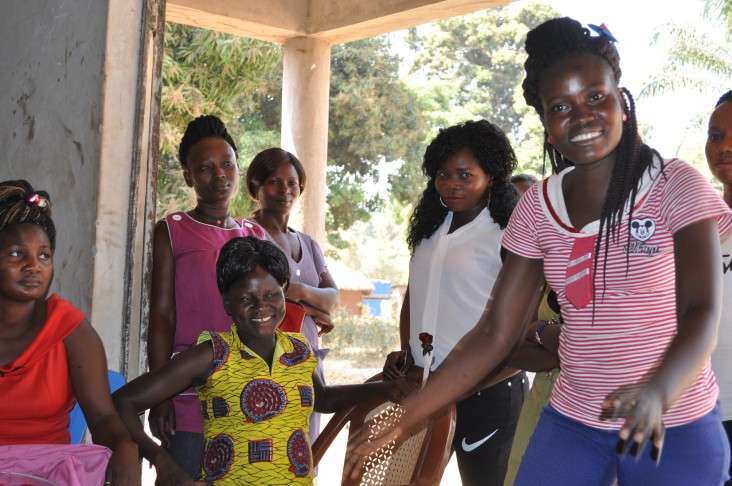Speeches Shim

May 2018 — Grace William, a female sex worker in Yambio, South Sudan, is visibly pregnant by a client who refused to use a condom. Like many female sex workers, she has been a target of violence. She is HIV-positive and has been on antiretroviral drugs for two years.
She is also a volunteer peer navigator for USAID’s LINKAGES project, which is helping to dispel misinformation and increase awareness and services for people at risk of HIV infection in major towns across the Equatoria region. Western Equatoria has the highest rate of HIV infection in South Sudan.
As a peer navigator, William meets with people living with HIV to ensure that they take their medication regularly.
Last year, South Sudan had 14,000 new HIV infections and 12,000 AIDS-related deaths, according to UNAIDS. In 2017, there were 180,000 people living with HIV in the country. Contributing to the rise in HIV/AIDS cases is lack of knowledge about the virus and how to prevent infection, and the ongoing conflict that restricts access to treatment and has included widespread rape and gender-based violence.
Samurtu Jane is also a sex worker and volunteer peer educator in Yambio, reaching female sex workers with health education, antiretroviral drugs, and contraceptives. She says she was raped when she was a teenager in Uganda. Once a week she visits places where female sex workers hang out in bars and discos to educate them about safe sex and distribute male condoms.
“Male condoms are more popular than female condoms because it is easy to use,” says Jane.
Young women are lured into sex work in Yambio due to unemployment and extreme poverty. Most of them are single mothers and the sole breadwinner for their family. Jane, who dropped out of school, says she needs the income to survive.
“As a result of the work of peer educators, there is a behavior change as people are voluntarily coming out to be tested for HIV,” said Vukoni Kizito, a project officer with Action for Development, which implements the LINKAGES project in Yambio.
Kizito attributes HIV prevalence in Yambio to its proximity to the Central African Republic, the Democratic Republic of the Congo (DRC) and Uganda — countries with high rates of HIV. He adds that, due to widespread lack of knowledge about the disease, some people in Yambio believe HIV is the result of witchcraft, and deny that it is sexually transmitted.
He also points out that there are challenges in reaching survivors of gender-based violence, including communication problems. Some of the female sex workers may not have phones, or they may live in remote areas that are not secure to visit at night.
Approximately 15,000 female sex workers in South Sudan have benefited from HIV awareness services through the LINKAGES project, which is funded by the U.S. President’s Emergency Plan for AIDS Relief. The program works in Yambio, near the border with the DRC; Nimule, near the Uganda border; Yei, near the borders of Uganda and the DRC; and the capital city of Juba.
LINKS
Follow @USAIDSouthSudan, on Facebook, on Flickr

Comment
Make a general inquiry or suggest an improvement.